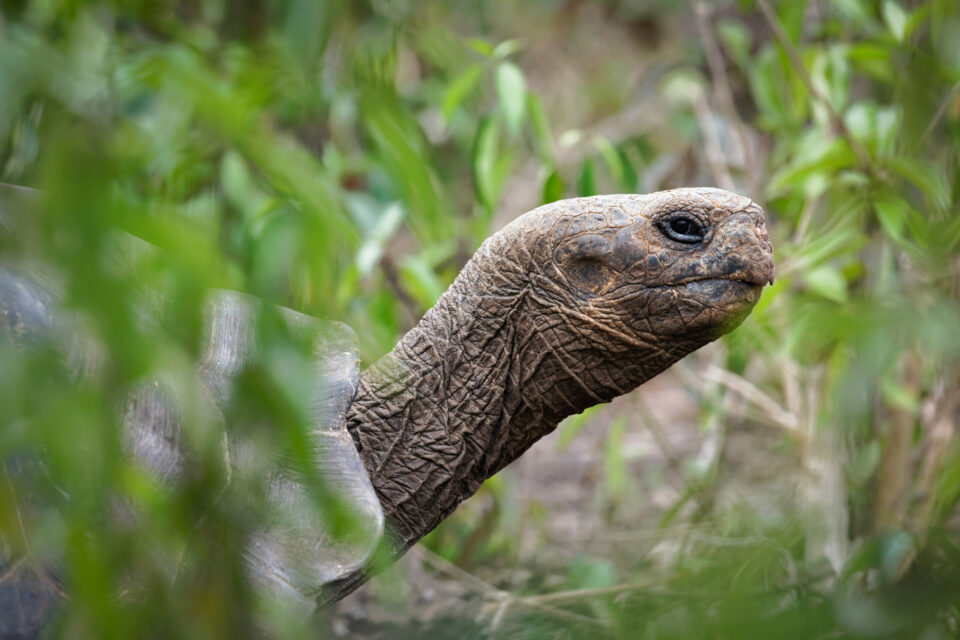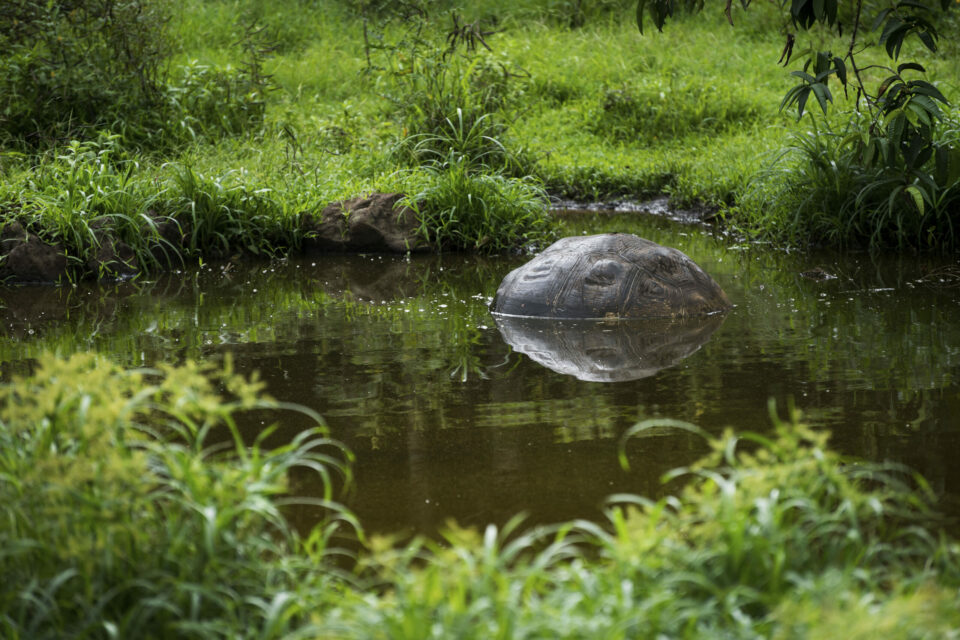

Galapagos Giant Tortoise Movement Ecology Programme – Updates
Scientists are worried that tortoises will not be able to adjust the timing of their migration in the face of climate change, as new research shows that they may be basing their decisions on past conditions.
With the Galapagos Tortoise Movement Ecology Programme (GTMEP), we have collected many years of data demonstrating the migration pathways of Galapagos giant tortoises between the dry and wet seasons. Food availability and optimal conditions for nesting are influenced by the change in season and are both important reasons why tortoises make their migrations. Scientists are worried that in the face of climate change, tortoises will not be able to adjust the timing of their migration as new research involving GTMEP scientists shows that these long-lived reptiles may be basing their decisions to migrate on past average conditions – not current conditions. This could potentially result in tortoises mistiming their migrations in the future, and undermining the benefit of doing so.
With uncertainty around future environmental change, preservation of quality habitats and migration routes is even more critical for maintaining giant tortoise populations, but human population growth and the presence of introduced species makes this challenging. With increasing frequency, tortoises are encountering private lands, farms and fences that interrupt their ancient migration pathways. A key concern is that these interactions and the presence of humans and domestic animals on these lands are increasing the risk of exposure to antibiotic resistant bacteria.
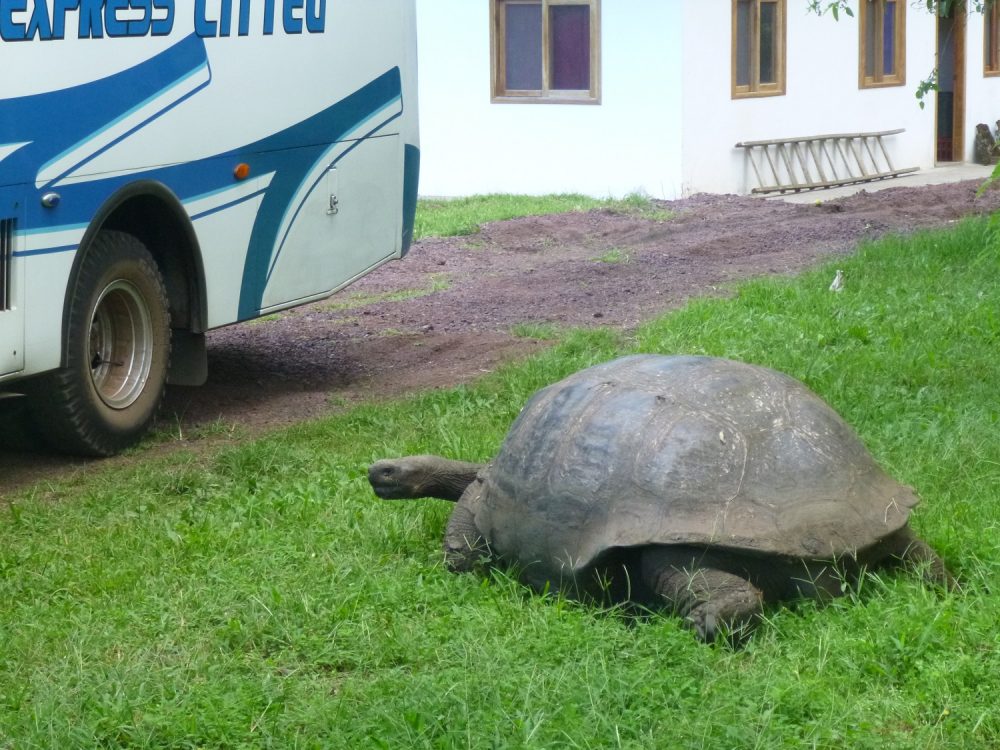
With increased urbanisation, Galapagos giant tortoises are increasingly seeing their ancient migration routes disturbed © Mary Buckley
Through a comparative study, PhD student and veterinarian Dr. Ainoa Nieto, under the umbrella of work by the GTMEP, is aiming to establish the overall health of tortoise species across a gradient of human modified landscapes, including investigating the presence of antimicrobial bacteria in the gut of giant tortoises. Populations to be studied include tortoises found on Alcedo volcano (Chelonoidis vandenburghi) on Isabela island that rarely come in to contact with humans, and the western and eastern Santa Cruz species (C. porteri and C. donfaustoi respectively) whose natural migration pathways overlap human modified lands.
For this study, the field team collect a range of biological samples and record tortoise sex, weight and physical condition. Results from preliminary work suggests that western Santa Cruz tortoises are carrying antimicrobial resistant bacteria throughout the environment. The consequences for tortoises of increasing levels of antibiotic resistant bacteria are not known, but it is likely that they will become more susceptible to disease over time if levels of resistance continue to rise.
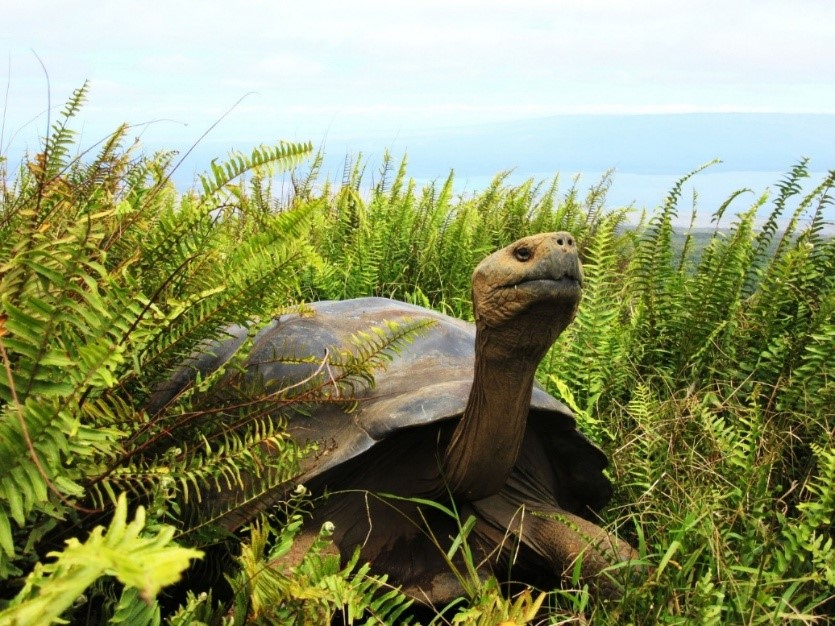
Galapagos tortoise from Alcedo Volcano at the edge of the crater © Surya Castillo, CDF
In 2018, Ainoa and fellow researchers undertook a field trip to Alcedo volcano where they worked long hours collecting and processing samples from 70 different tortoises. Moreover, earlier in 2019, a further 200 tortoises were sampled on Santa Cruz. The fieldwork for this study is made particularly challenging due to the logistics of reaching the sites used by tortoises and the heavy rains and severe heat endured by the researchers. Nevertheless, the team have successfully collected 800 samples for analysis, which will be carried out at both the Charles Darwin Research Station and a specialised lab in Madrid, Spain. Many hours have been spent in the lab and analysis is now well underway with over 50% of samples analysed. The team has conducted two more field expeditions to the eastern area of Santa Cruz to sample C. donfaustoi in late 2019.
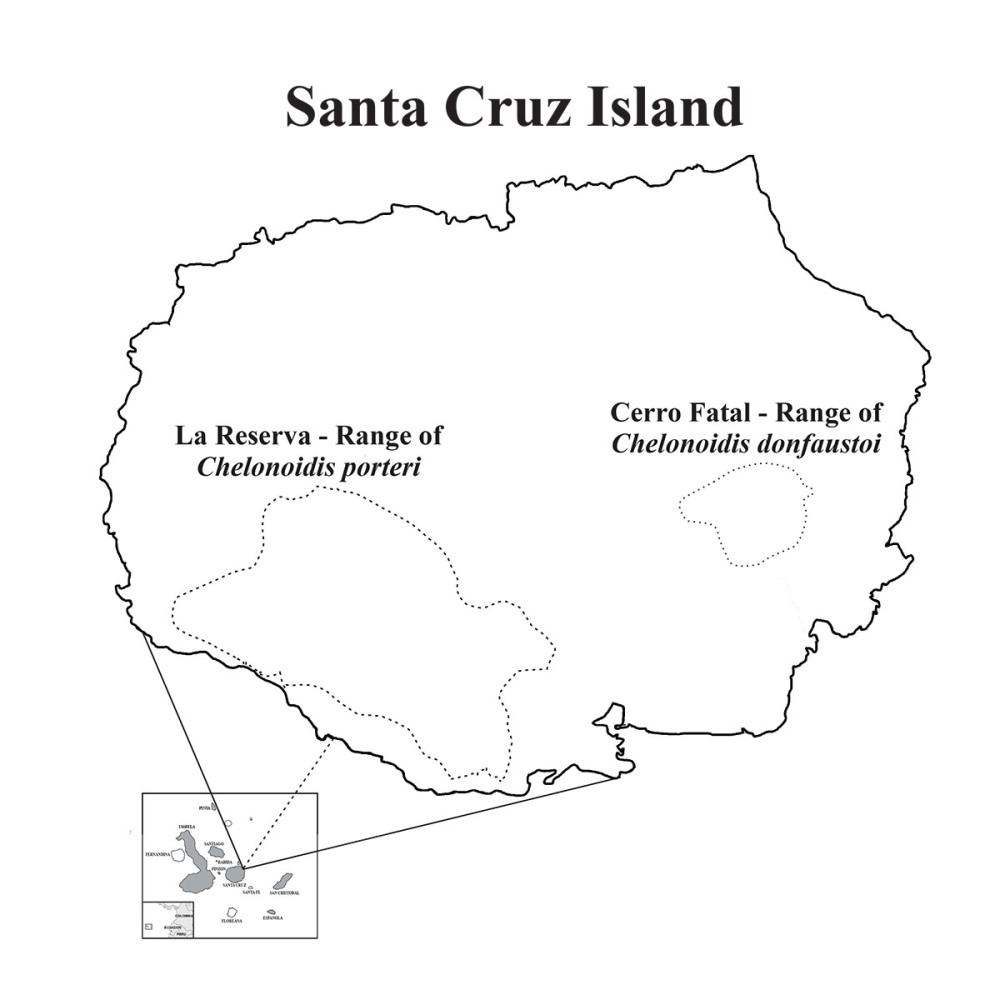
Two species of giant tortoises live on Santa Cruz island(C) Nikos Poulakakis
As results are collated, we will be able to see a clearer picture of how human activities are impacting tortoise health which, importantly, will have implications for land-use management by the Galapagos National Park in their efforts to protect migration routes. Moreover, results will inform the design of long-term tortoise health surveillance plans. Ultimately, this study will provide vital information to support conservation of giant tortoises and maintaining wider ecosystem health.
This programme is a multi-institutional collaboration among the Charles Darwin Foundation, the Max Planck Institute of Ornithology, the Galapagos National Park, Saint Louis Zoo Institute for Conservation Medicine, the Houston Zoo and Galapagos Conservation Trust.
How to help Galapagos giant tortoises?
Donate towards the GTMEP programme or adopt a giant tortoise hatchling today! Alternatively become a GCT member to commit long term support and in return receive our biannual magazine for updates from this project and others.
Related articles

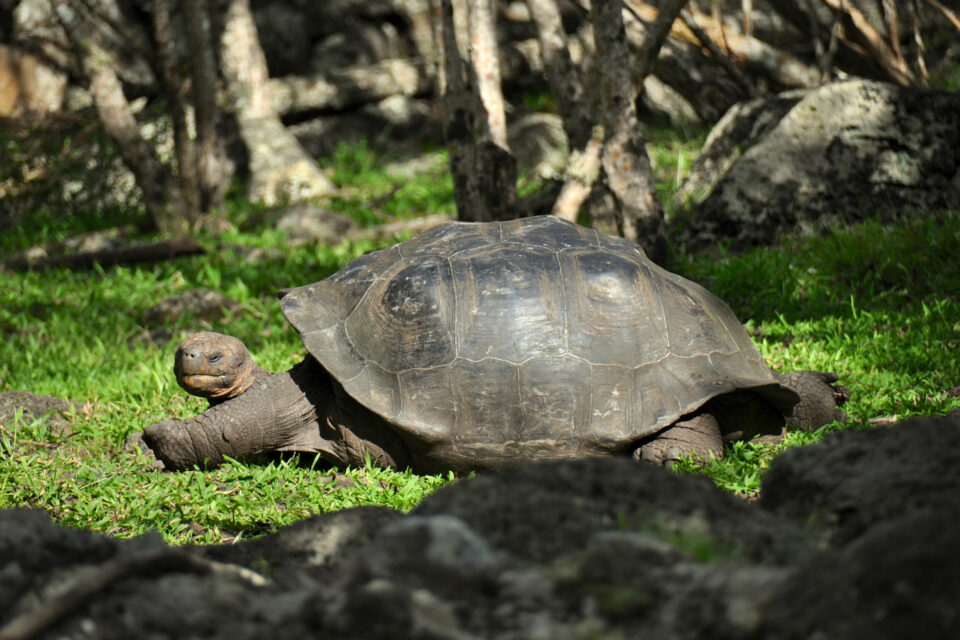
The return of the Floreana giant tortoise
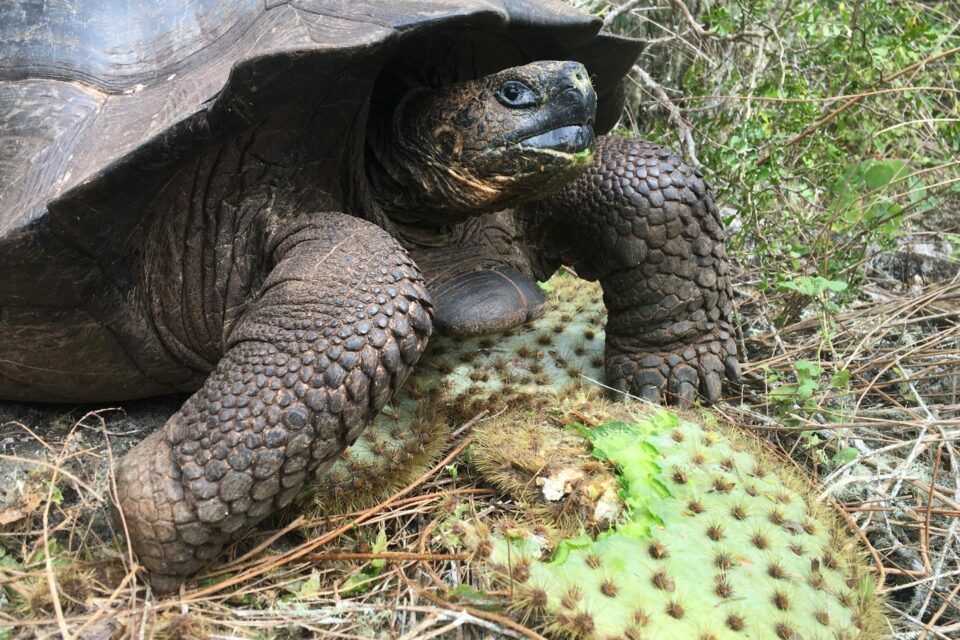
Galapagos giant tortoises: An update from the field
